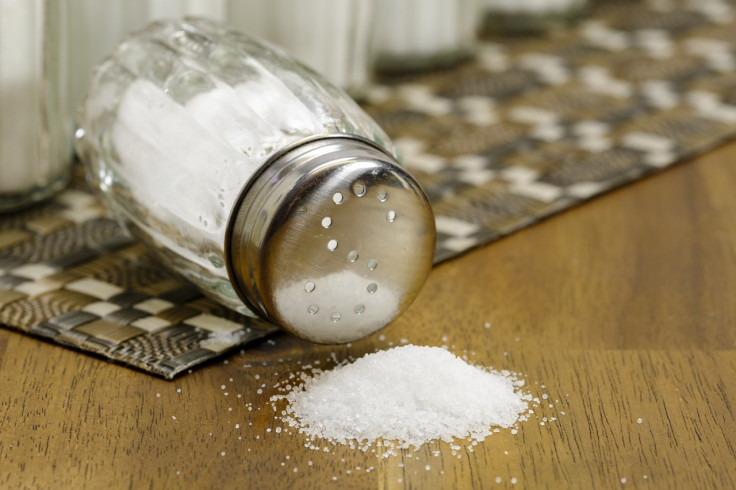Cut Down On Salt: Study Says High Consumption Increases Risk Of Diabetes

It's not just sugar, excess salt may also put people at risk of diabetes. The frequent use of added salt increases the risk of developing type 2 diabetes, a new study has revealed.
Researchers from Tulane University, Louisiana, evaluated the link between long-term dietary sodium intake and type 2 diabetes. High consumption raised the risk of diabetes by 39%, according to the findings published in Mayo Clinic Proceedings.
"We already know that limiting salt can reduce the risk of cardiovascular diseases and hypertension, but this study shows for the first time that taking the saltshaker off the table can help prevent type 2 diabetes as well," lead author Dr. Lu Qi, a professor at the Tulane University School of Public Health and Tropical Medicine, said in a news release.
The team followed up with around 400,000 participants registered in the U.K. Biobank to evaluate their salt intake. After an average of 11.8 years, more than 13,000 participants developed type 2 diabetes.
"Compared to those who 'never' or 'rarely' used salt, participants who 'sometimes,' 'usually' or 'always' added salt had a respective 13%, 20% and 39% higher risk of developing type 2 diabetes," the release read.
"Our findings for the first time indicate that a higher frequency of adding salt to foods, a surrogate marker for a person's long-term salt taste preference and intake, is associated with a higher T2D risk," researchers explained.
The study doesn't show how excess salt intake elevates diabetes risk. However, the team observed an interesting link between frequent use of added salt to higher BMI and waist-to-hip ratio. They believe it might be because salt makes people eat large portions, which can result in obesity and inflammation – the contributing factors to diabetes.
To further understand the link, the next step would be a clinical trial that involves controlling the salt intake of participants and observing the effects.
Qi recommends limiting salt intake and looking for low-sodium alternatives for seasoning.
"It's not a difficult change to make, but it could have a tremendous impact on your health," Qi said.



























